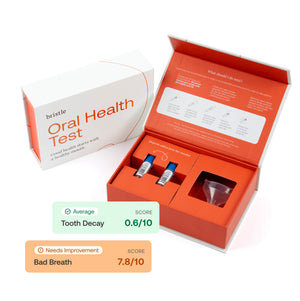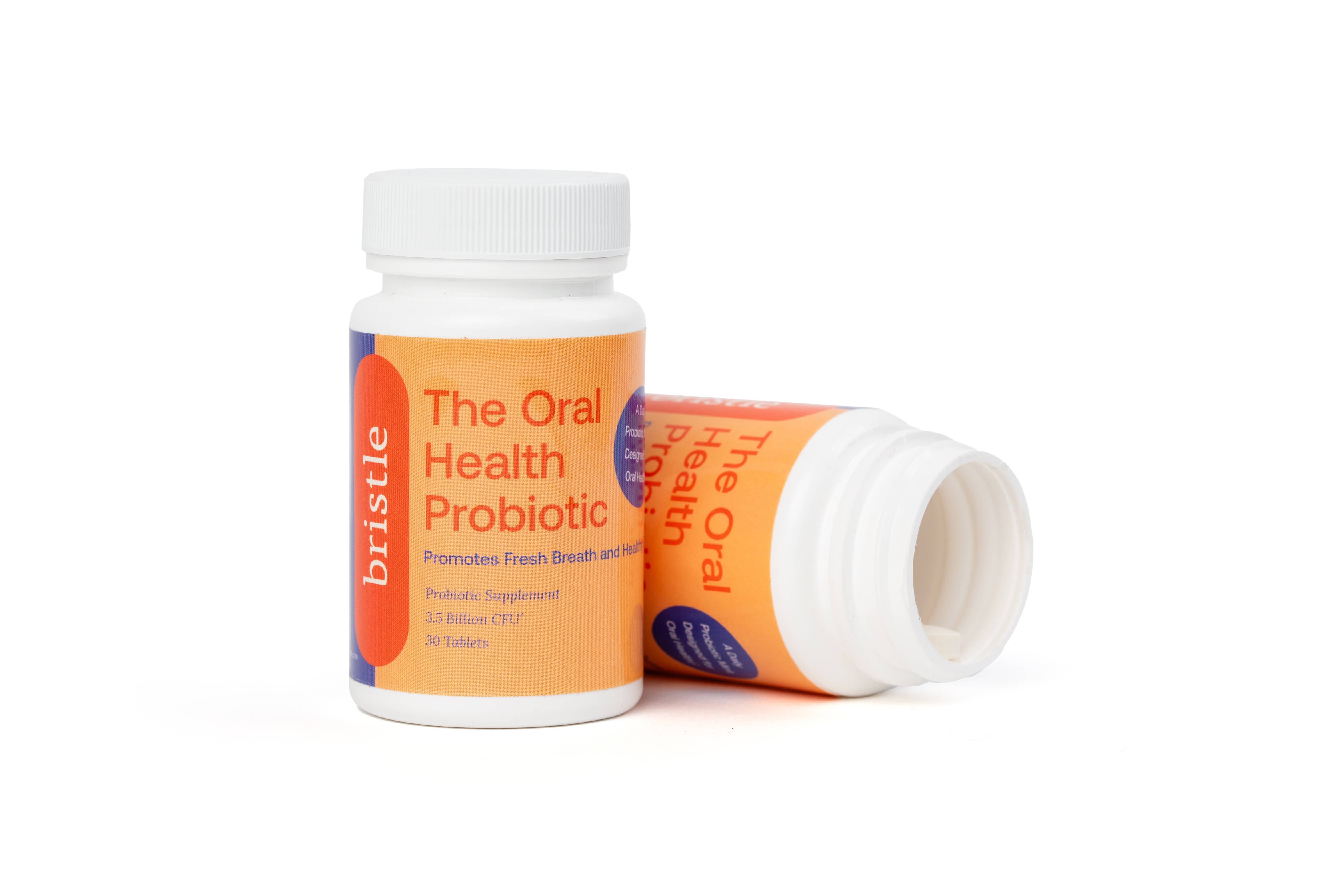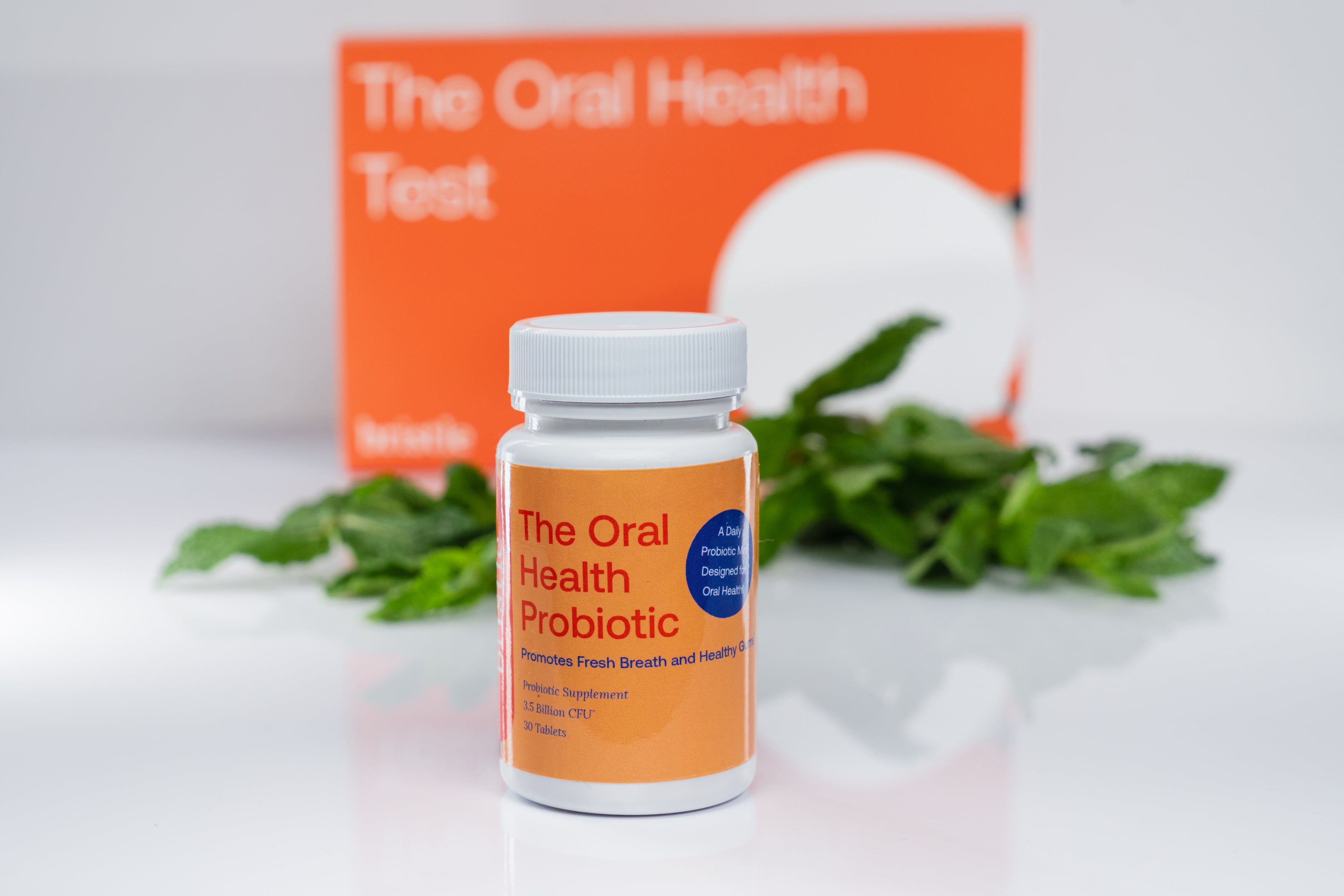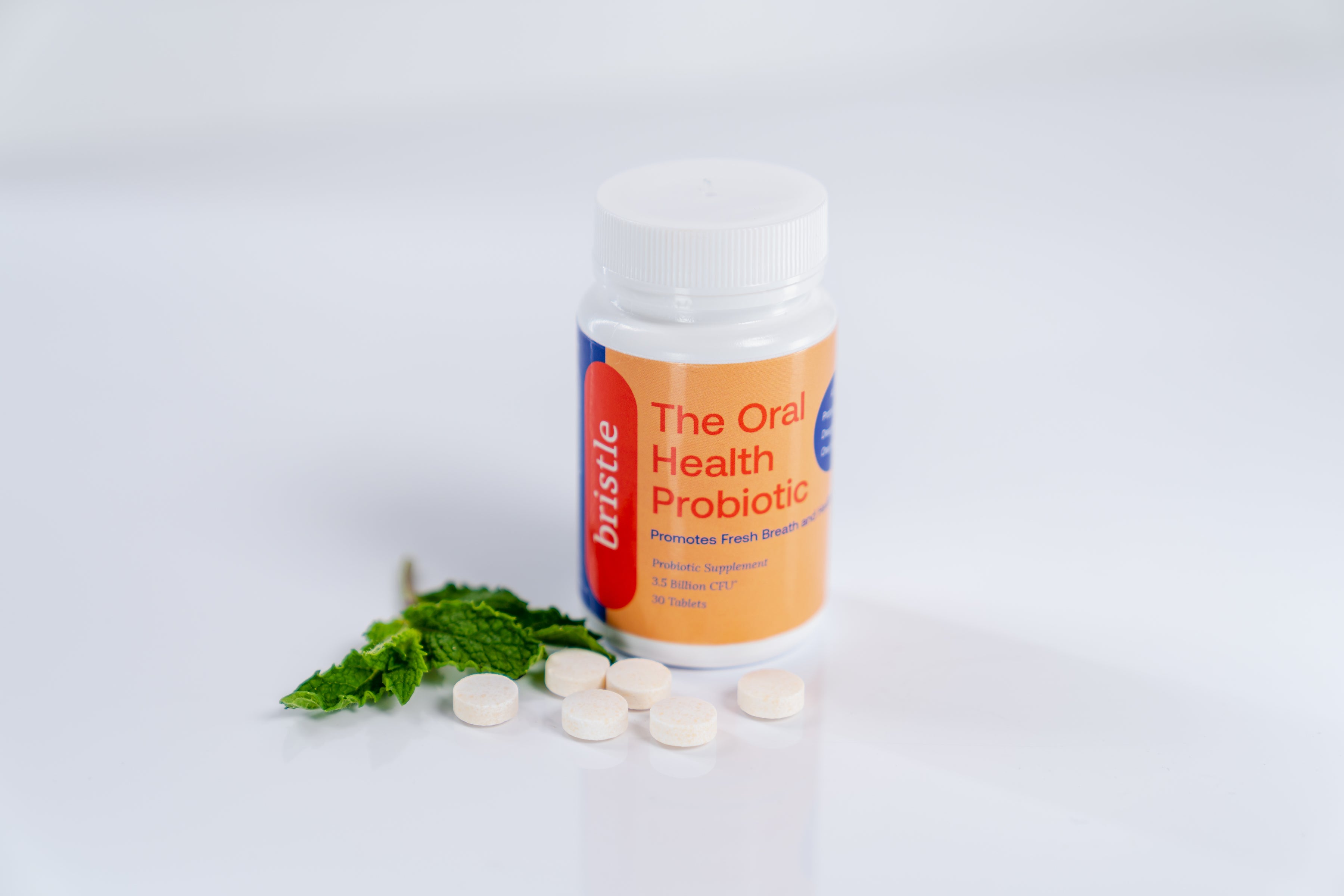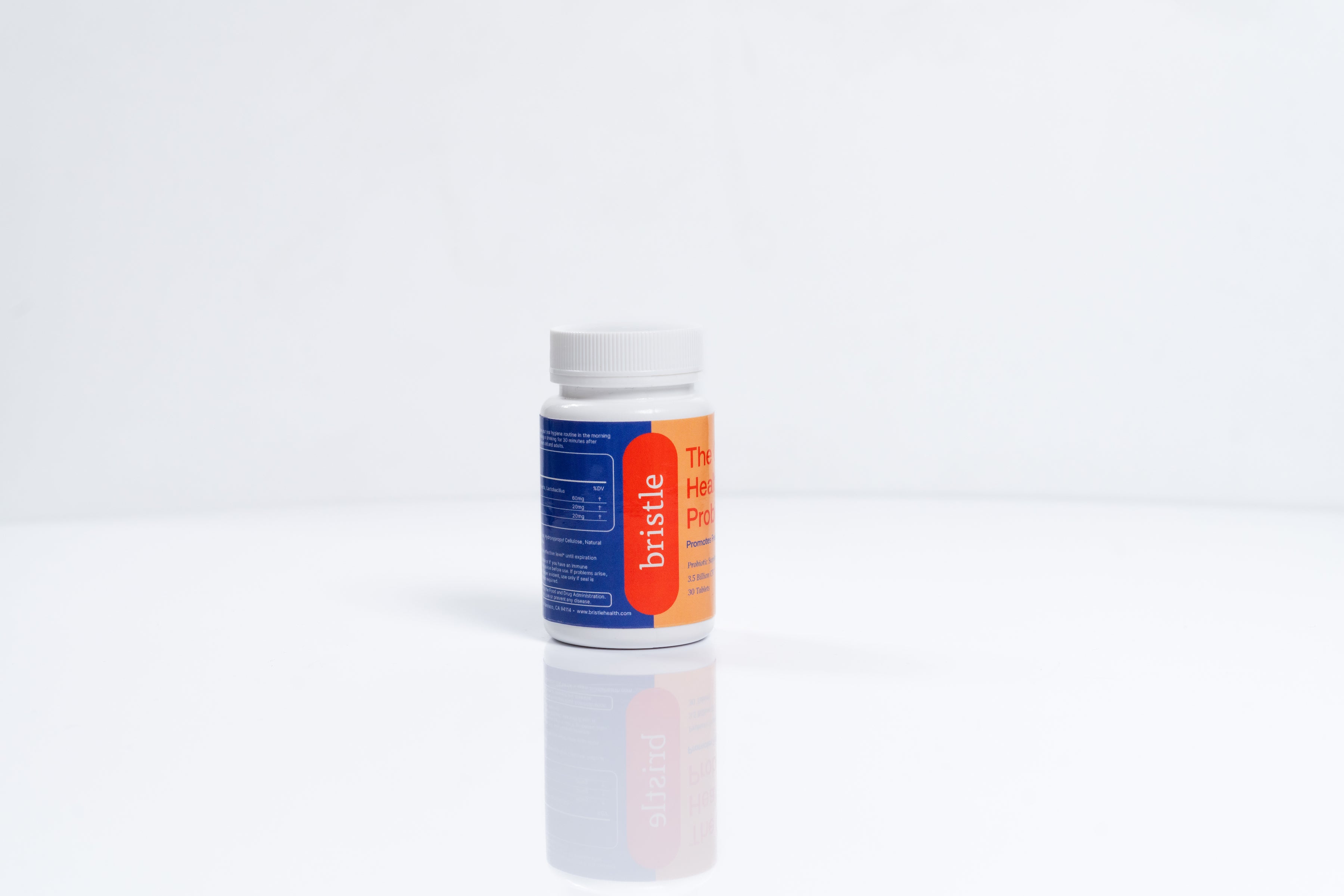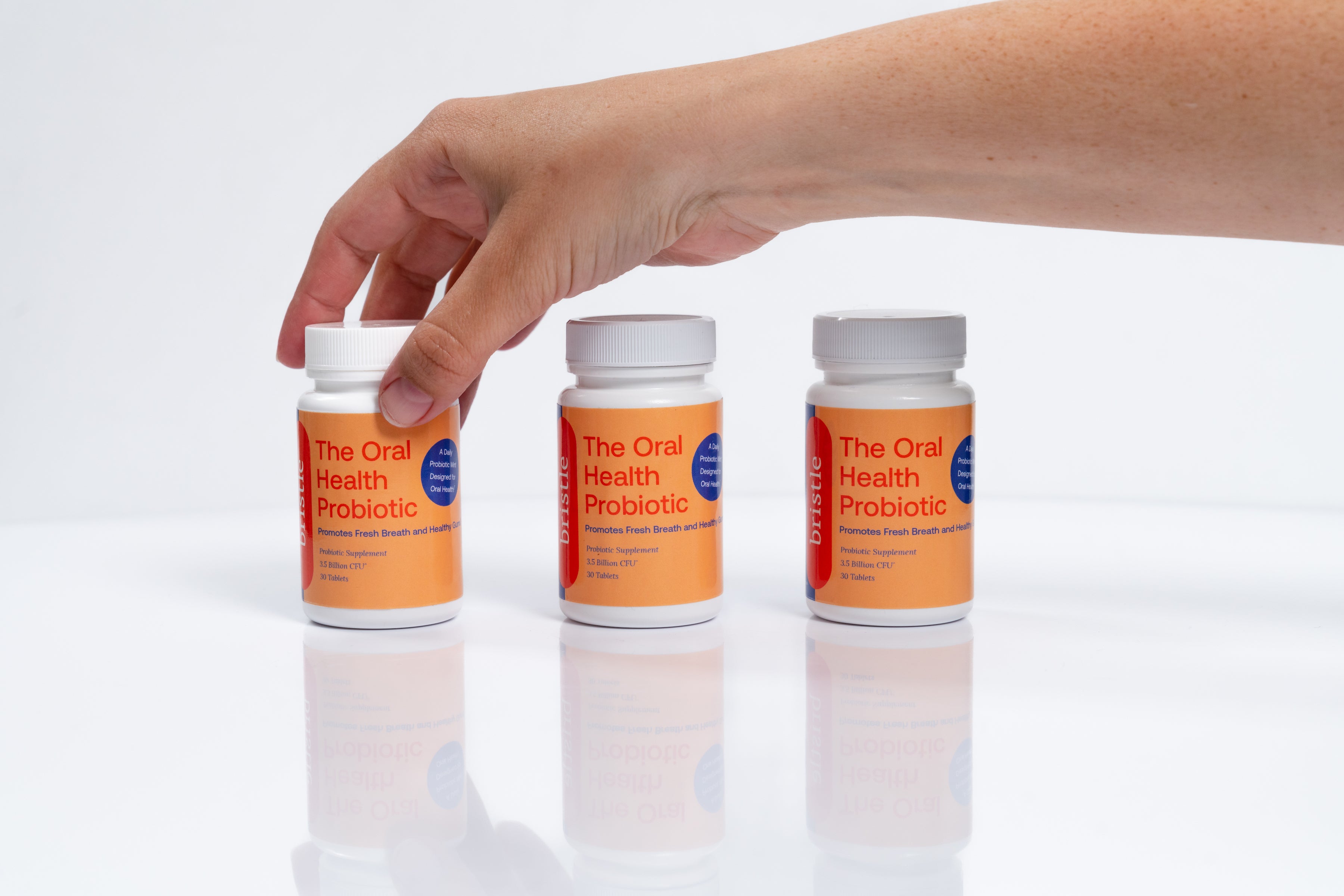This article is co-written by Crescent and Bristle Health.
Brushing your teeth may be part of your nighttime routine, but are there more connections between sleep and oral health?
Optimal sleep, and I’m not referring to how many hours, but more about the quality of your sleep, will enhance your immune system and reduce inflammation. That alone is your best defense strategy in preventing oral disease.
Dr. Mark Burhenne, DDS
Family Dentist & advisor for Bristle, Co-Founder, AskTheDentist.com
Factors that affect oral health
A few things going on in our mouths can influence our overall oral health, one of which is saliva production. Many bodily processes slow down when we sleep, and saliva production follows this trend. Our bodies naturally produce less saliva as we sleep, so there is less to swallow and possibly disrupt our sleep. Although this may be helpful for sleep continuity, there is a downside. Saliva helps “wash away” or clear bacteria from our teeth and other areas of our mouths; with the decreased amounts of saliva, the prevalence of bacteria increases. Just like our saliva production has a circadian timing, so do the types of bacteria in our mouths.
Most oral diseases including cavities, gum disease, and halitosis (bad breath) are driven by an overabundance of harmful bacteria, leading to an imbalance in the oral microbiome (the community of bacteria, fungi, and viruses in our mouths). Research has also shown associations between oral bacteria and systemic conditions including Alzheimer’s, diabetes, cardiovascular disease, and adverse pregnancy outcomes.
An overgrowth of nighttime bacteria is also the reason we wake up with morning breath and lower saliva levels which causes dry mouth. Thirty-seven percent of people report experiencing dry mouth, and when dry mouth is problematic, it can also lower people’s quality of life.
Mouth breathing and oral health
However, how we breathe is another important factor to consider. Breathing through our nose (while awake or asleep) is our natural breathing state and the way we see most people breathe; however, somewhere between 30-50% of adults breathe more through their mouths, which is problematic for various reasons.
When we breathe through our nose, the air is naturally humidified and warmed for the lungs, has a higher level of oxygen absorption, and helps lung volume.
Mouth breathing, on the other hand, is associated with reversal of orthodontic work, weaker muscles around the mouth and jaw, crowded or crooked teeth, and poor oral pH balance, leading to tooth decay and other oral health issues.
Mouth breathing while sleeping can also indicate underlying conditions such as sleep apnea, enlarged tonsils or adenoids, deviated septum, or poorly controlled allergies. It is important to follow up with healthcare providers to rule out any possible contributing health issues.
If you get a clean bill of health, you can decrease mouth breathing through exercises, and there are a variety you can do to (try this one as an example). Mouth taping has also risen in popularity, which can have numerous benefits including increased nitric oxide levels and reduced risk of both teeth grinding & dry mouth.
Sleep quantity and your teeth
Getting a healthy amount of sleep also impacts our oral health in a few other interesting ways. The average range of healthy sleep changes as we age (e.g., 7-9 hours from ages 18-65, and 6-8 hours for ages 65+). If we are consistently out of that range or experience insomnia symptoms, our bodies don’t properly restore and rejuvenate, and our inflammation and immune responses can be negatively affected. Studies have shown that people with poor sleep have a higher prevalence of gum disease. Poor sleep has also been tied to craving and eating more sugary or carbohydrate-based foods, which may contribute to tooth decay. In other words – healthy sleep, healthy teeth!

